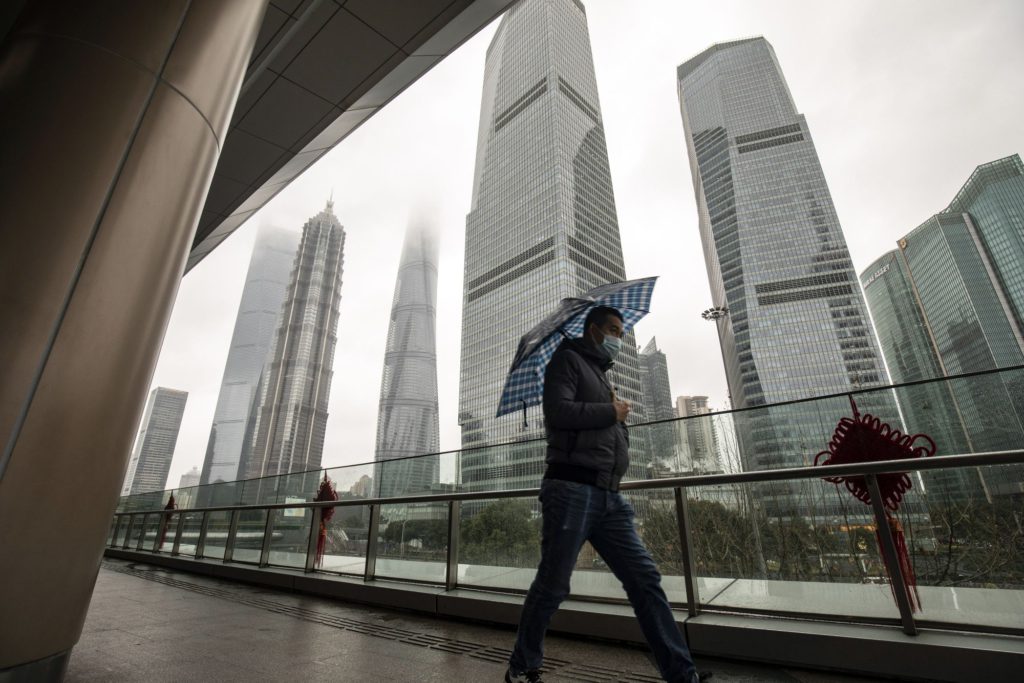(Bloomberg) — Technology stocks led a broad rally in Chinese equities on Friday as the nation’s top leaders vowed to boost economic stimulus and as speculation grew about a possible easing of the continued crackdown on internet firms.
The Hang Seng Tech Index jumped 10% in Hong Kong, the most since March 16, led by names like Alibaba Group Holding Ltd. and JD.com Inc. The Communist Party’s Politburo said authorities will unveil specific measures to support the healthy and normal development of the platform economy.
Tech stocks started surging even before the Politburo’s announcements, with traders citing rumors including one about an upcoming meeting between companies and policy makers about relaxation of the yearlong regulatory clampdown. China is planning a symposium with ‘Big Tech’ after the Labor Day holiday, the South China Morning Post reported later in the day.
“The latest statements from China’s Politburo are very bullish for the market,” Manish Bhargava, fund manager at Straits Investment Holdings Pte in Singapore. While it is hard to accurately call a bottom in this volatile market, today’s move in stocks amid Politburo’s comments “could imply that maybe some kind of a near-term floor is in place,” he said.
The Politburo’s readout was released at the earliest time of day of any since at least January 2017, according to a Bloomberg review of official statements. The mid-day release helped the benchmark CSI 300 Index rally 2.4% and end the week on a positive note ahead of a five-day holiday.
China’s top leaders also pledged to meet economic targets even as the nation battles its worst Covid outbreak since 2020.
Hong Kong’s benchmark Hang Seng Index climbed 4%. A Bloomberg gauge of developers erased earlier losses to jump 2.9%, after authorities said efforts will be made to help the stable and healthy development of the property market.
The offshore yuan rebounded, gaining more than 0.5%. The Australian dollar, which is driven by commodity exports to China, rose almost 1%.
READ: China Politburo Power Reverberates in Asia Late Trading
Separately, people familiar with the matter told Bloomberg News that Beijing is discussing with American regulators the logistics of allowing on-site audit inspections of Chinese companies listed in New York — a sign of progress in talks to keep U.S. stock markets open to issuers from Asia’s largest economy.
Beijing appears to be “compromising” with the U.S. regulations on keeping Chinese firms listed overseas, said Justin Tang, head of research at United First Partners. “Stocks are oversold and there is speculation of the potential end to the crackdown on these companies.”
‘Far From Enough’
Chinese tech stocks had rebounded strongly from a historic rout mid-March after a committee led by Vice Premier Liu He made a sweeping set of policy promises. However, a Covid flareup and a lack of concrete steps continued to weigh on the broader equity market.
READ: Jaded China Stock Traders Unconvinced by Run of Support Pledges
“The gist of the pledges is similar to Liu He’s, but in the past weeks some people thought it was all empty slogans,” said Wu Xianfeng, fund manager at Shenzhen Longteng Assets Management. “We are in the process of witnessing policy implementation now.”
Officials on Friday reiterated support for China’s dynamic Covid Zero policy, a key sticking point that traders have remained wary about. The nation’s adherence to this measure has forced lockdowns from Shanghai to Beijing, adding to the concerns for investors already grappling with Federal Reserve rate hikes.
Today’s surge helped the CSI 300 Index avoid a fourth straight weekly decline. The measure rose 0.1% this week, thanks also to its 2.9% jump on Wednesday after President Xi Jinping made a bold commitment to boost infrastructure spending in a bid to revive the economy.
Still, the gauge ended April with a 4.9% loss, and is one of the world’s worst-performing national benchmarks this year.
The government may want to “buy some time” to cushion the economy, but to see a solid rally from here, Beijing’s measures are far from enough, because you need a good external environment, Kenny Wen, strategist at Everbright Sun Hung Kai Co., said by phone. “We still have war, rising rates and Covid, which Beijing can’t control.”
More stories like this are available on bloomberg.com
©2022 Bloomberg L.P.











